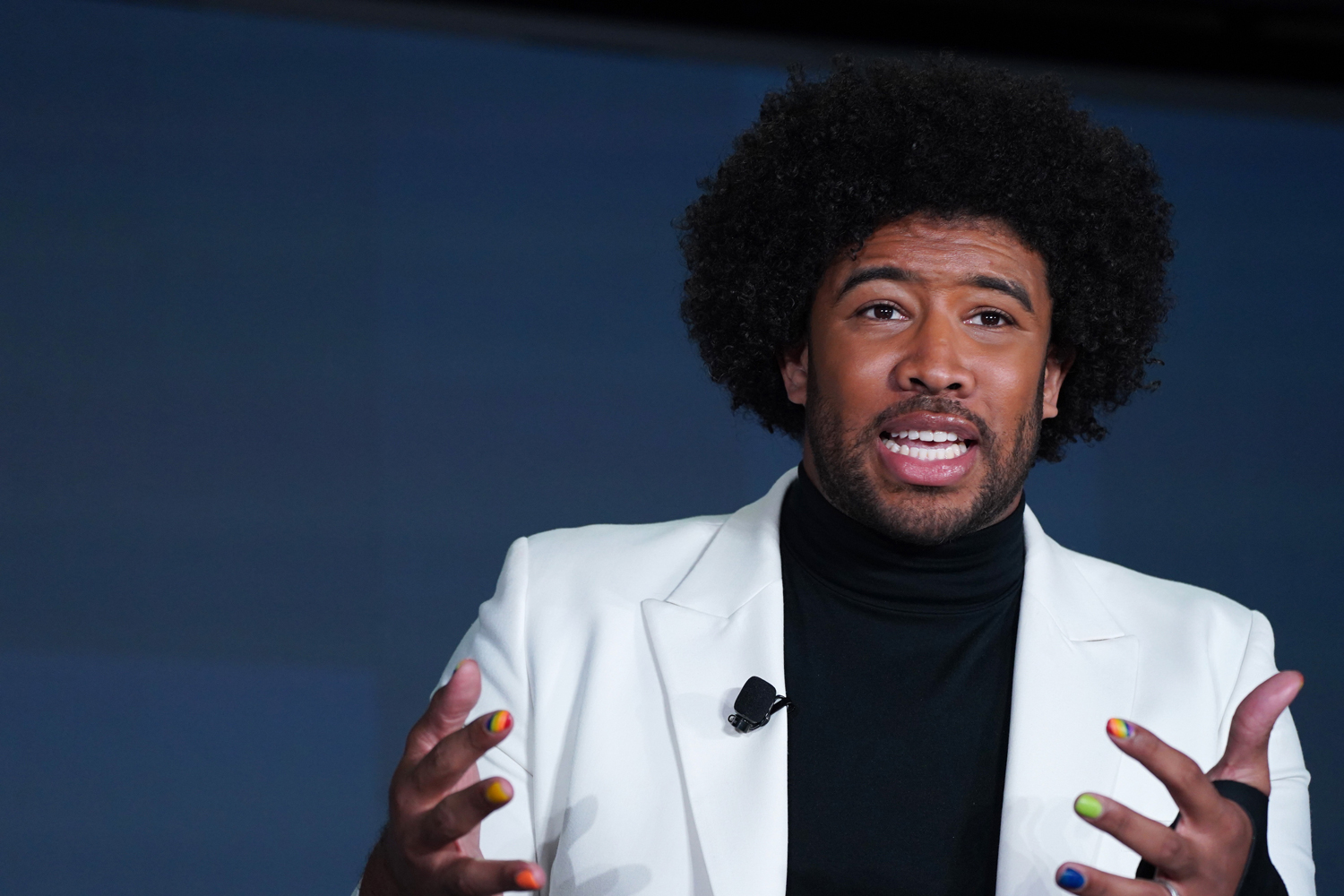It should come as no surprise that many classical composers were LGBTQ. Like today’s rock stars, successful composers have always had women and men throwing themselves at them. Likewise, they were often welcomed into aristocratic circles that allowed them a certain cultural latitude. Here are just a few of the most beloved composers of all time, who just so happened to be part of our community.
Hildegard von Bingen: German Nun, Abbess, and Saint (1098-1176 AD)
In addition to composing, Hildegard von Bingen also was a poet and wrote about philosophy, religion, medicine and science. Called the Sibyl of the Rhine, she was a Christian mystic and the first to study natural history in Germany. And some 400 years before Martin Luther’s Reformation, she gently pointed out the need for reform within an increasingly corrupt church. So it’s truly amazing that she was consulted by the kings and popes of her era.
In fact, her close relationship with another nun appears to have been romantic — to say nothing of her focus on desire and the female body in her artistic works. They were often shrouded in devotion to the Virgin Mary. Her liturgical music, say many, was divinely inspired.
Shortly after her death, the campaign to canonize her began. For whatever reason for the extreme delay, she was finally declared a saint recently.
Her Ordo Virtutum, a morality play set to music, is about the inevitable defeat over the devil:
Read Next | Photographer Cindy Sherman: This is What Made Her Click
Georg Friedrich Handel: Migrant to England (1685-1759)
German by birth, Handel was a child prodigy. He began his career as an appointed church organist, like Bach. The position held great prestige at the time, and included room and board in his patron’s castle. The job also afforded him much needed time to compose new works.
Later in his 20s he permanently moved to London, where his German prince ascended to the throne as George II of England. Despite his working class roots, Handel was welcomed into Britain’s circle of openly gay aristocrats. Fiercely private, Handel cannot reliably be romantically linked to anyone of either sex. When asked by King George II why he did not marry, his sole reply was that he had “no time for anything but music.”
Another clue into his sexuality is that in his day he was called Orpheus. The appellation refers to a prince and musician in Ovid’s writings who rejects females and teaches the Greeks to love males instead. It’s worth noting as well that Orpheus overcomes the Sirens’ treacherous song by playing a music louder and more beautiful than theirs.
His greatest works include his Water Music, Music for the Royal Fireworks and the immortal Hallelujah Chorus, which Joseph Haydn said brought tears of joy to his eyes. Whether stately and grand, soothing and beautiful, Handel’s music always befit the royal court that kept him employed.
It’s quite a compliment that Beethoven, universally acclaimed as the greatest composer and also possibly gay himself, considered Handel “the greatest composer that ever lived.”
Frederic Chopin: French By Choice (1810- 1849)
Born in Poland, the composer moved to Paris at age 20 where he was part of a Salon with artists such as Delacroix and George Sand (a woman who smoked cigars, wore men’s suits and wrote under a male pen name). Artistic works such as Hershey Felder’s play “Romantique” speculate on the exact nature of the trio’s dynamic.
Chopin was a prolific writer of love letters, so we know he bedded a number of women socialites and dated the openly gay Marquis de Custine — and that he cherished his lifelong relationship with a school friend.
Bear in mind that then (and in centuries dating back to the latter days of the Roman Empire), indulgent carnality was shunned — even within marriage. For example, before going to battle armies were instructed to abstain from sexual activity altogether in order to be at peak strength and endurance. That’s why Chopin’s love letters adopt this point of view, claiming repeatedly that sexual activity dramatically reduced his creativity. So it seems he spent most of his life celibate (but certainly not chaste), putting work ahead of personal considerations.
He was also widely recognized as one of the great composers of piano music, his most acclaimed works include what is known as the “Minute Waltz” and his Valse Op 64, No 2 in C# minor. Additionally, his Etudes are so beautiful, it’s difficult to believe they were written as mere piano exercises for students.
Read Next | This Week’s Best LGBTQ Events in New York City
Aaron Copland: Quintessentially American (1900-1990)
Copeland was credited with bringing the sounds of ethnic minorities into great music halls around the world. His compositions were written in the “vernacular” style of the people and often incorporated folk tunes. Those works were written in an intimate style — often for no more than a dozen instruments — rather than for an entire orchestra.
He was good friends with another LGBTQ composer in New York City, conductor Leonard Bernstein. For all practical purposes, they were out, even though the media largely hid those distinctions from the public.
Despite a long and successful career, his best-loved works were written during WWII: Fanfare for the Common Man, Quiet City, and Rodeo (his “cowboy ballet” which includes the renowned “Hoedown,” as well as “Simple Gifts” from the ballet Appalachian Spring (based on a 19th century Shaker tune). Although the melody of “Simple Gifts” is one of the most basic ever written, it could well be his finest masterwork. But the beauty is in the hearing. The music itself tells a story if you listen closely.
And, in case you think this music can’t raise the roof, here’s the ’70s prog-rock trio Emerson, Lake and (a studly shirtless Carl) Palmer tearing up Copeland’s Fanfare for the Common Man.
Want to hear another of the gay greats? Check out Pyotr Ilyich Tchaikovsky, here.
Want Metrosource LGBTQ content notifications? Sign up for MetroEspresso.

Read Next | Finding a Great LGBT-Friendly Therapist or Counselor in NYC
Last modified: October 16, 2019










